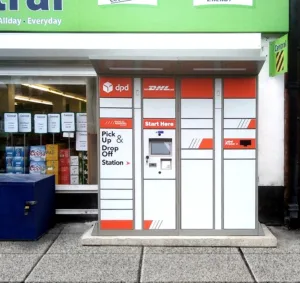by Svetlio Todorov, Managing Director, emerchantpay
With inflation taking hold, increasing cost of overheads and declining consumer spending means there is an instinctive move by retailers to cut back in order to stay afloat.
Retailers are facing tougher trading conditions, with supply chain issues, a tight labour market and dwindling consumer confidence. Some retail businesses are investing in optimising their own operations and supply chains to avoid future price rises, which could result in consumers further tightening their belt.
An efficient payments process can play a crucial role in helping to protect revenue at uncertain times like this, but also in increasing it. This article outlines some of the key payment considerations online retailers must make to help protect margins during the inflation and beyond.
Optimise payment processing to avoid losing revenue
According to emerchantpay’s report, ‘The Great Payments Transformation’, 91% merchants felt they were losing revenue due to shortcomings in their payment systems. Over half (55%) predicted that they were losing up to 10% of turnover, with a third (36%) saying that 11-25% of their revenue was being lost. Conversely, if they made improvements, the majority of businesses expected to see an uplift of between 7-10% of revenue.
Using a payment partner, retailers can pinpoint areas in their payment flow that can be optimised to protect against lost revenue and increase sales. Similarly, streamlining returns can boost margins.
emerchantpay’s New World One Market report showed that in 2021, a quarter (25%) of consumers considered ease of return as a primary factor for non-grocery purchases of more than £50, showing that in order to remain competitive, the returns process must be as frictionless as possible. Therefore it is important that retailers work closely with their payments partner to improve their payment flow, ensure they issue refunds in a timely manner and avoid chargebacks. By doing this, retailers will be confident defending chargeback claims with their payment partner’s guidance and support.
Combating fraudulent transactions
Fraud is costly and, in some occasions, it can significantly damage a merchant’s reputation and bottom line. By setting appropriate fraud rules with their payment service provider, merchants will be better placed to identify and prevent the majority of fraud incidents pre-emptively.
Merchants must ensure that their payments set-up is optimised to accept legitimate transactions and decline those that could be fraudulent and could lead to chargebacks, which are costly as they require resources from time investigating claims through to fines from card schemes, to name a few.
However, transactions are sometimes declined for legitimate reasons, such as the customer having inadequate funds, or due to their card being reported as stolen. As merchants drill down into their payments data, and with their payment partner’s insights, it becomes easier to identify fixes that could prompt higher levels of acceptance.
Offer preferred payment methods
In today’s digitally evolving payments landscape, merchants must strive to accommodate shifting preferences and technologies.
In a survey of consumers conducted by emerchantpay last year, respondents were asked how they envisaged making payments in five years’ time. Debit card saw the biggest drop in usage; among millennials, this preference dropped from 37% now to 32% in five years, and Gen Z dropped from 34% to 27%. 15% of Gen Z and 11% of Millennials expected to pay by digital wallet as their preferred method in future, with a small number of respondents (4%) expecting to use cryptocurrencies. What’s more, 38% of consumers said they felt encouraged to make a purchase when having BNPL as an option.
This data demonstrates a gradual shift in consumer preferred payment methods and highlights the need for retailers to offer a range of options to suit the needs of different groups of their customers. In today’s increasingly competitive eCommerce environment, payments should be seen as a differentiator rather than simply offering operational advantage – and the key here is giving choice.
Make better use of payments data
Efficient use of data is a key point of friction for many merchants in their payments optimisation journey. emerchantpay’s research shows that more than a third (36%) of payment professionals see a lack of data as a barrier to investing more in optimising their payments. This can become a vicious circle for many businesses.
Data can be the key to remaining agile and deepening customer relationships. With the right level of support from their payment providers, a robust business case built on hard payment data and a real commitment to show the value of payments at a commercial level, businesses large and small can ensure that their teams are able to demystify payments performance.
Seek expert guidance
It’s crucial to work with an experienced PSP that understands different business model and needs, providing strategic one-on-one advice and tools that can help merchants safeguard revenue.
Without a strategic payment strategy to drive payment agility, online retailers are all the more likely to keep hemorrhaging significant revenue due to the pitfalls in their payment processes.
However, the right payment service provider can help retail brands maximise the value of their payment systems, providing a roadmap towards streamlined payments via essential tools, data-driven insights and dedicated support.












